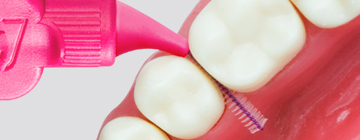Gum disease, otherwise referred to as periodontitis is caused by a bacterium that grows inside the mouth. It can end up with your teeth falling out if you do not properly treat it.
Gingivitis is often times confused with gum disease, this is where the gums are inflamed, but have not yet progressed into gum disease. Early on in gingivitis the teeth will have bacteria and plaque that builds up, and the gums will get inflamed and bleed when you try to brush the teeth. The teeth are still in their sockets though when you brush. When you have gingivitis there is no irreversible damage to the bones and the strength of your teeth, which will make them fall out. If you do leave this untreated then it will lead to gum disease. Gum disease makes the inner part of the gum to fall away from the bones of the teeth and make pockets. Your body cannot fight away the bacteria when plaque has formed and the the bacteria gets into the pockets and makes the gum line to worsen as the bacterium multiplies.
There are a lot of poisons and toxins made from the bacteria present in tooth plaque, and the body’s good enzymes that are able to help us to fight away infections will start to attack the bone and the tissue which holds the teeth into place. Once gum disease in in its later stages, it will make the pockets get deeper, and more and more gum and bone tissue will be damaged. They will no longer be in place and they will loosen and you will sadly lose your teeth. Sadly, in the UK gum disease is the leading cause of tooth loss in adults. It is however, on the upside, something that can be treated and prevented though when caught early.
So What Are The Symptoms Of Gum Disease?
Plaque makes the gums diseased. Other contributing factors can be when your hormones change. This can be because of pregnancy, periods, puberty, and of course the menopause. This can make your gums to be more sensitized and easier for the gingivitis to form.
If you are ill with something like cancer, HIV, or any type of immune disorder this could affect your gums too. Patients with diabetes are affected with this condition a lot because diabetes stops the body from being able to use blood sugar correctly.
Medicines can make you more prone to gum disease too. Some limit your saliva production, and saliva has a protective effect on the teeth and gums. Things like dilatin, anti-angina drugs, adalat and procardia can make the gums to get abnormal amounts of soft tissue growing on them.
If you are a smoker, your gums will not be able to repair themselves properly. So this puts you at risk too. It is important that you brush your teeth, floss, and make sure that you use mouthwash daily, in order to prevent gingivitis and gum disease.
The Symptoms of Gum Disease
It is not always painful. Symptoms can include red gums that are sore and swollen. Your breath may smell and you may have a really bad taste in your mouth all the time. Your gums will recede in some cases, and you will see noticeable pockets between your gum line and teeth. Your teeth may feel wobbly and loose. You could notice subtle changes in your bite, like your dentures not fitting correctly, or your bite becoming further apart.
Whatever the case is, it is best to get it checked out by one of our Vitasmile professionals today. Gum disease is preventable!






